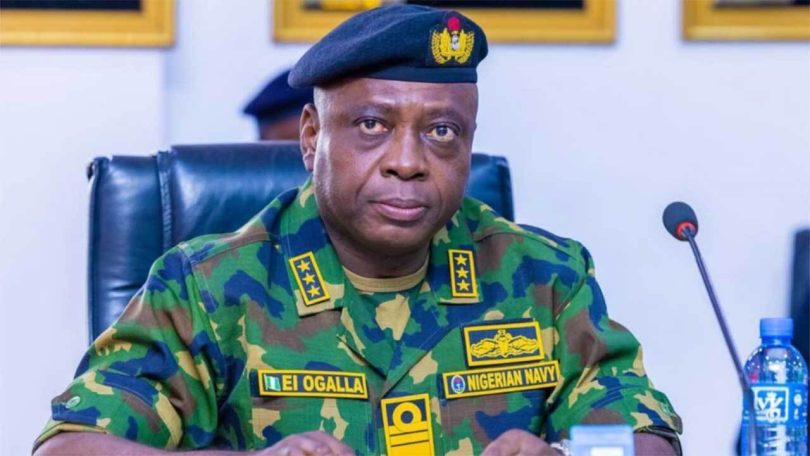Vice Admiral Emmanuel Ogalla, Chief of Naval Staff (CNS), has asserted that the future strength of the Nigerian military hinges on the adoption of homegrown technology and innovation. He made this statement during the Nigerian Navy Seminar on Research and Development held in Abuja, themed “Utilising Emerging Technology for Enhanced Operational Effectiveness,” where he was represented by Rear Admiral Hamza Kaoje, Chief of Communication and Information Technology (Navy).
Ogalla emphasized that Nigeria’s ability to dominate its maritime domain and safeguard its oil-rich waters is increasingly reliant on technological advancement and innovation, rather than merely on fleet size. He pointed out that the Nigerian Navy faces a landscape of asymmetric and rapidly evolving threats, including piracy, oil theft, smuggling, and insurgency, all of which increasingly leverage unmanned systems, encrypted communications, and sophisticated navigation technologies.
“The contest for maritime security will no longer be determined by numbers or conventional assets,” he stated. “It will be won by those with superior innovation, intelligence, adaptability, and technological sophistication.”
The Naval Chief urged Nigeria to reduce its reliance on imported technologies and focus on developing mission-critical assets domestically. He highlighted the need for accelerated local production of radars, navigation systems, drones, secure communication devices, and surveillance technologies.
“This initiative is not about prestige; it is a strategic necessity,” he explained. “Our long-term security requires solutions conceived by Nigerian minds, specifically tailored to our realities, and manufactured by local industries.”
Ogalla noted that the navy has already made strides in local shipbuilding through the Naval Dockyard Limited (NDL) and the Naval Shipyard Limited (NSL) but stressed that progress must be expedited. He revealed plans for the establishment of innovation hubs, hackathons, and ideation labs throughout naval formations to tap into the creativity of personnel.
He also mentioned the navy’s commitment to enhancing the welfare of its personnel by investing in new bases, barracks, and support facilities, underscoring that innovation must coincide with a motivated and well-equipped workforce.
“Research and Development (R&D) can no longer be an academic pursuit; it must be embedded as a core strategic asset, on par with personnel, weapons, and logistics,” he asserted.
Ogalla called for a collective societal effort to realize this vision, urging lawmakers to provide policy and funding support, the private sector to engage in manufacturing and testing, and universities to assist in translating research into practical technologies. He further insisted on the necessity of genuine technology transfer agreements to replace dependence on foreign imports.
Rear Admiral Monday Unurhiere, Chief Transformation (Navy), underscored the well-documented impact of technological advancements on military operations and their continued relevance in conflict situations. He noted that the seminar is timely, given the Nigerian Armed Forces’ commitment to countering various national security threats.
The two-day seminar aims to enhance the Navy’s research ecosystem and facilitate the integration of emerging technologies into its operational strategies. In his address, AVM Osichinaka Ubadike, a Professor of Aerospace Engineering, called for enhanced ingenuity in unmanned aerial vehicle (UAV) technology to support maritime operations, reiterating the critical role of research and innovation in modern warfare and advocating for local initiatives and technology transfer.

